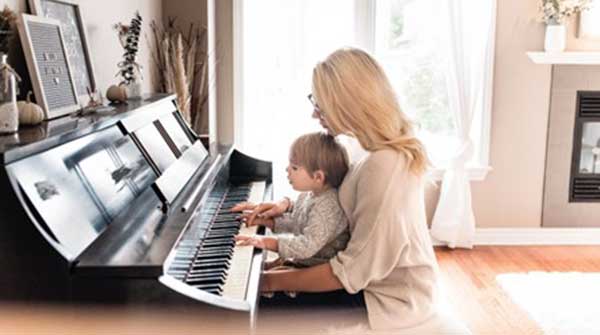
Over the past decade, music therapy has been increasingly used in the treatment of many childhood disorders and conditions. However, music therapy may be helpful for children with ADHD in particular. In this article we will explore the five benefits of using music therapy as part of an ADHD treatment plan.
- It can be used to calm and relax children who have ADHD-like symptoms
The calming effect of musical sounds is well documented. Researchers have found that listening to music may significantly improve a child’s attention span, focus, and attention readiness.
- It can reduce anxiety and improve the ability to cope with change and transitions
Many children with ADHD are also highly susceptible to stressful situations. A study suggests that music therapy may be helpful in reducing stress by helping children cope with difficult events and transitions more effectively.
- Music can improve social interactions and communication skills
A study has found that children with ADHD tend to have difficulties in recognizing non-verbal signals such as facial expressions. Results indicate that music therapy can help these children in developing such non-verbal skills.
- Music can help promote creativity and imagination in young people with ADHD
Creativity cannot be seen as a specific skill or an attribute of intelligence. It is a process that involves thinking creatively and critically, generating new ideas, and imagining things in different ways. Learning to play a musical instrument can help a child in developing creativity and imagination. If you have a pending paper to be written you can contact write my essay today services near you and you will be assisted.
- Music can improve coordination and increase motor skills
Physical coordination is an important aspect of learning how to play a musical instrument. There is also evidence that music therapy may be beneficial in the treatment of fine motor problems as well as gross motor problems such as clumsiness, poor posture, lack of physical control, and difficulties with rhythm, timing, and balance.
- Music can help develop positive self-esteem
Disordered self-esteem is a common problem among children with ADHD. They tend to have low self-esteem as well as low parental self-esteem. A study has found that music therapy may be beneficial in both these areas of emotional difficulties.
- Music can reduce the aggression and hyperactivity in these children
A study found that music therapy can improve the relationship between the teacher and a child with ADHD. The research indicates that it may be beneficial in reducing the aggressive behavior and hyperactivity of these children. The same study also suggests that music may have an enhancing or moderating effect on their symptoms. The positive effects are based on the mutual understanding between teachers and students as well as their common interest in music.
- Music can be used to help children cope with pain (e.g., from burns or injuries)
Music therapy may be especially helpful for kids who are experiencing pain-related problems. Music therapy may be an effective treatment for children who often experience severe pain. The effects of music therapy may be due to the fact that music helps them in developing coping strategies which are more effective in dealing with negative feelings than non-musical self-soothing strategies.
Conclusion
Music therapy can have a positive effect on many aspects of children’s behavior and development. As part of an ADHD treatment plan, it can improve school work, social skills, and self-esteem.
This content is a joint venture between our publication and our partner. We do not endorse any product or service in the article.

